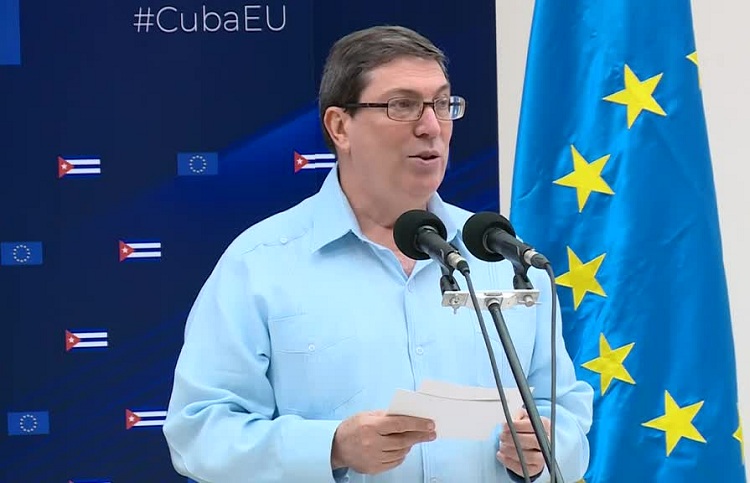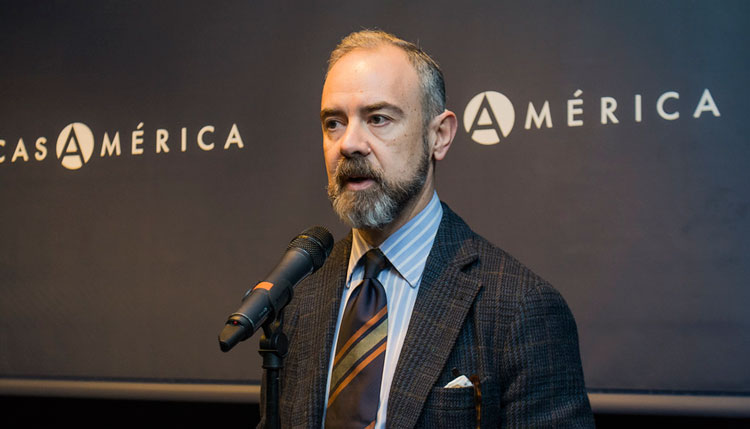Eduardo González
The Minister of Foreign Affairs, Arancha González Laya, will take part in the third meeting of the EU-Cuba Joint Council this Wednesday, which will coincide with the arrival of Joe Biden as President of the United States and the end of the mandate of Donald Trump, a president who was particularly belligerent towards the Castro regime.
The meeting will be chaired by the EU’s High Representative for Foreign Affairs and Security Policy, Josep Borrell, and by the Cuban Minister of Foreign Affairs, Bruno Rodríguez, and will serve, above all, to take stock of the implementation of the Political Dialogue and Cooperation Agreement between the European Union and Cuba (PDCA), including its ratification process, and to examine issues related to political dialogue, cooperation, sector policies, trade and investment, among other matters, according to the EU.
This is the third meeting of the Joint Council, which last met in Havana in September 2019. The Joint Council was established within the framework of the Political Dialogue and Cooperation Agreement between the EU and Cuba, which was signed by both parties on 11 March 2016 in the Cuban capital, and in whose approval the Spanish Government, chaired by Mariano Rajoy of the PP, played a very important role. The agreement replaced the previous EU Common Position, which made any agreement conditional on progress towards democracy on the island and in whose approval, in 1996, Spain, specifically the government of José María Aznar, also of the PP, had played a very important role.
The current agreement entered into force provisionally in November 2017 and its full application will only be possible once it has been ratified by all the EU Member States. At present, the only European partner that has not yet ratified it is Lithuania. Spain did so in 2018.
The meeting between the EU and Cuba will take place on the very day that the Democrat Joe Biden takes office as President of the United States. Biden was precisely the US vice president during the term of office of Barack Obama, who in December 2014 announced an agreement with the then president of Cuba, Raúl Castro, to re-establish diplomatic relations after more than half a century of rupture, a decision which was applauded by the Rajoy government.
Joe Biden will replace Donald Trump, Obama’s successor in the White House, who in February 2019 announced the cancellation of his predecessor’s policy towards Cuba and stated that he would only agree to negotiate a new agreement if there were concrete progress towards holding “free elections” and “the release of political prisoners”. This change in policy towards Cuba included support for the US trade and financial embargo on the island and the rejection of international requests for the US Congress to lift the embargo.
Good examples of this change of course were the United States’ decision to lift the suspension of Title III of the Helms-Burton Act in Cuba, which was radically opposed by Spain and the rest of the EU, and a whole series of specific measures adopted by Trump until the last moments of its mandate, such as the approval, last December, of a series of sanctions on several Cuban tourism companies for their alleged operations to evade Washington’s sanctions or the very recent decision of the US State Department to declare Cuba a “state sponsor of terrorism”. This past Friday, the U.S. Treasury Department decided to block all foreign assets of the Cuban Ministry of the Interior and its head, General Lázaro Alberto Álvarez Casas, for “grave violations of human rights” against opposition activist José Daniel Ferrer.







